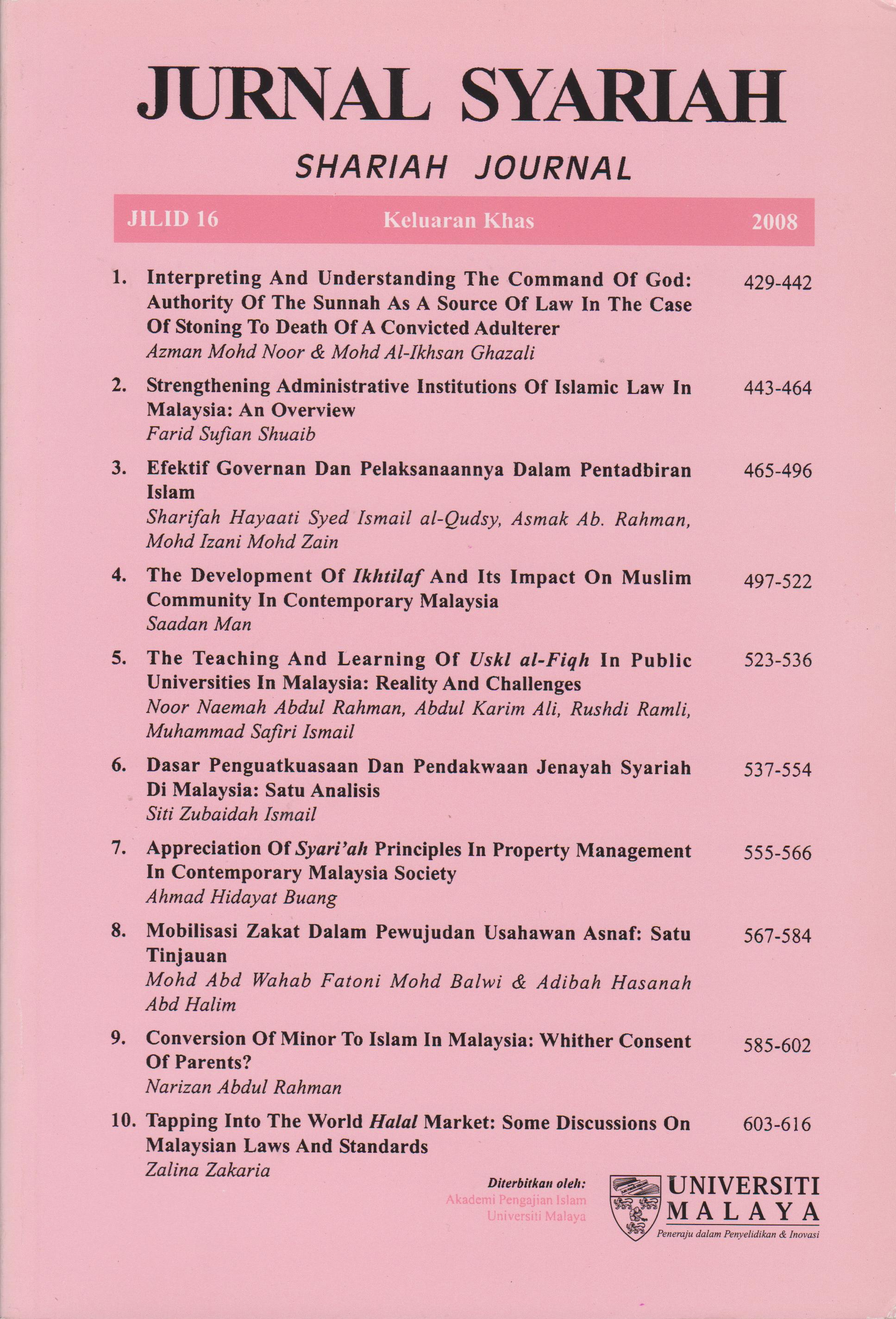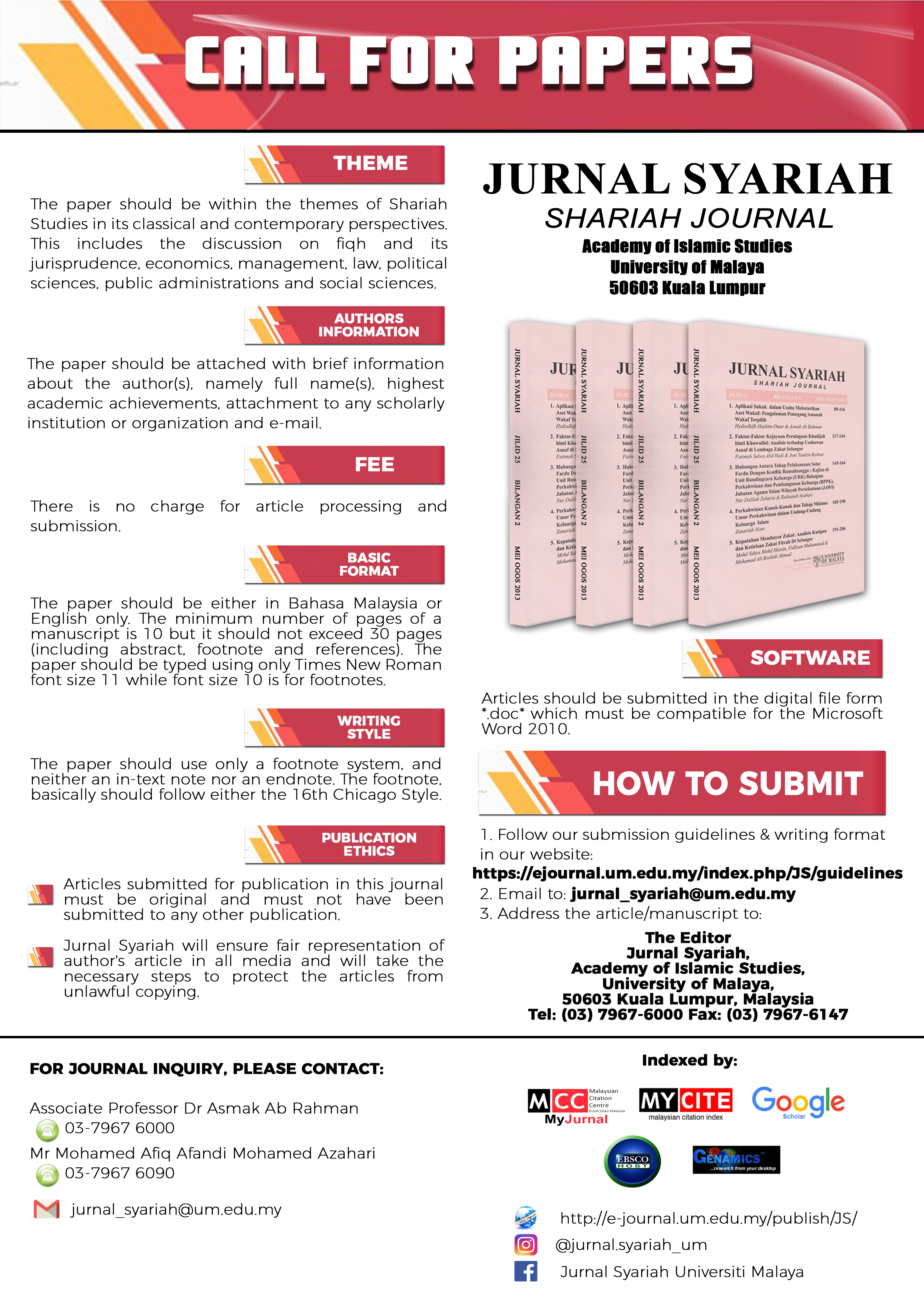THE TEACHING AND LEARNING OF USUL ALFIQH IN PUBLIC UNIVERSITIES IN MALAYSIA: REALITY AND CHALLENGES
Abstract
The teaching and learning of usul al-fiqh is important in order to derive Islamic legal rulings (hukm). Therefore, an expected outcome of studying usul al-fiqh is to produce students who master the tools (know-what) and have the capability (know-how) to derive Islamic rules through its primary and secondary legal sources. With regards to public universities in Malaysia, the subjects of usul al-fiqh are taught to shariah students and covers Islamic legal resources (Quran, sunnah, consensus, analogy, public interest, juristic preference, custom, etc), interpretation of legal texts, methodology of Muslim Jurists, conflict and preference (taÙ¬'arud and tarjih), legal maxims and others. However, some scholars are skeptical as to the ability of graduates to practice the tools of usul al-fiqh.1 Hence, this article attempts to portray the current scenario of studying usul al-fiqh in Malaysia particularly in the selected universities: University of Malaya (UM), National University of Malaysia (UKM), University of Islamic Sciences Malaysia (USIM), International Islamic University Malaysia (IIUM) and University of Darul Iman Malaysia (UDM). It will also identify challenges with regards to the teaching and learning of usul al-fiqh in Malaysia. The findings of this research are that: i) there is no standard number of related subjects of usul al-fiqh offered in public universities; ii) there is an urgent need for a module for the teaching and learning of usul al-fiqh in order to produce shariah students who are competent in the know-how of usul al-fiqh; and iii) the level of Arabic command among students needs to be paid great attention.
Downloads
Downloads
Published
How to Cite
Issue
Section
License
COPYRIGHT: All rights reserved. Not allowed to be reproduced any part of articles and contents of this journal in any form or by any way, whether electronic, mechanical, photocopying, recording or otherwise without permission in writing from the Chief Editor, Jurnal Syariah.



















